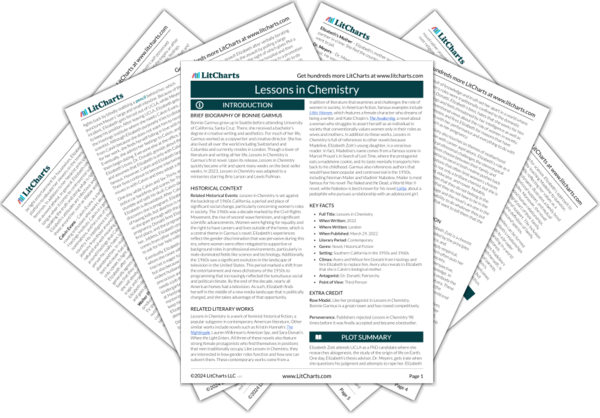AI ToolsNew
Tools to make learning and teaching easier
|
Previous
Chapter 2: Pine
|
Lessons in Chemistry: Chapter 3: Hastings Research Institute Summary & Analysis |
Next
Chapter 4: Introduction to Chemistry
|


Upgrade to unlock the analysis and theme tracking for all of Lessons in ChemistryLessons in Chemistry!
Get LitCharts A+